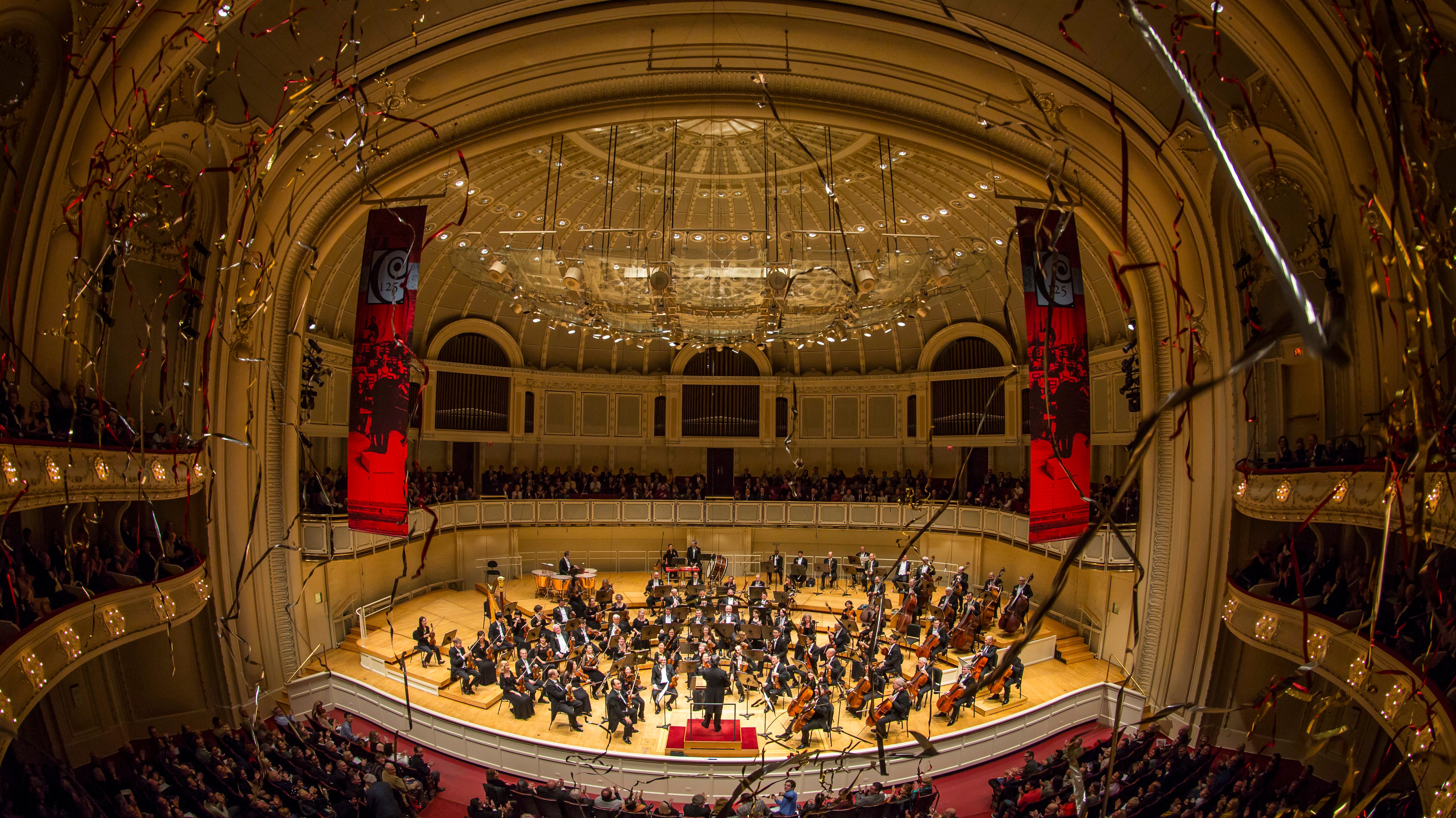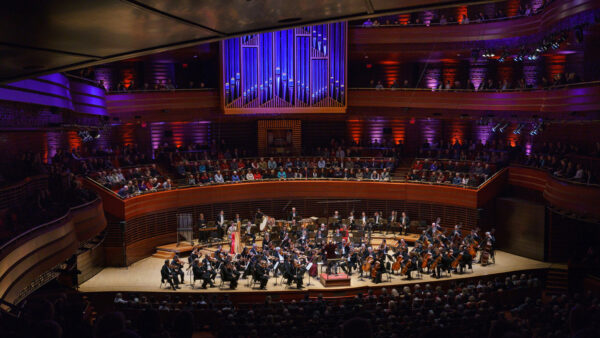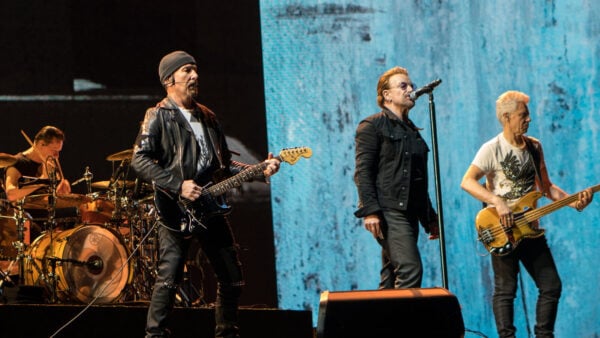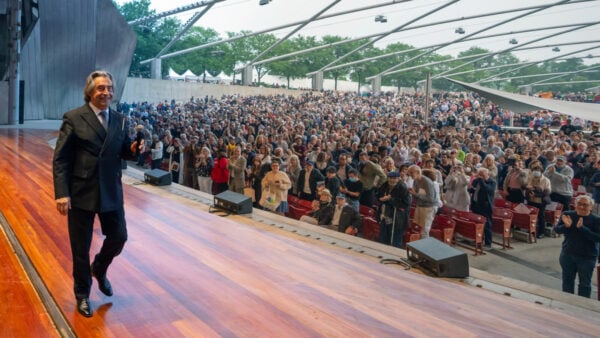
Photo: Todd Rosenberg
The Chicago Symphony Orchestra strike has ended and a new, five-year contract through September 2023 has been ratified, the CSO musicians and management confirmed on Saturday. The strike began on March 10 after contract negotiations broke down between the musicians and management.
In a Facebook post Saturday afternoon, the Chicago Federation of Musicians announced that the Chicago Symphony Orchestra Musicians had unanimously voted to ratify the contract agreement. The Association then voted to accept the agreement Saturday evening.
Said Helen Zell, chair of the CSOA’s Board of Trustees in the CSOA’s statement, “This new agreement reflects the excellence of the Orchestra and ensures that the musicians receive the outstanding compensation they deserve, while securing their and the CSOA’s long-term financial sustainability through the retirement plan transition.” Steve Lester, a CSO bassist and chair of the Musicians Negotiating Committee, was quoted: “The Musicians voted overwhelming [sic] for a fair and competitive compensation and retirement benefit plan that will ensure the excellence and sustainability of one of the finest orchestra’s [sic] in the world.”
This vote by the CSO musicians and Association ratified the musicians’ and management’s tentative agreement that was reached Friday evening with the help of Chicago Mayor Rahm Emanuel. On Thursday, the mayor announced that he would help mediate the dispute. Friday’s bargaining session, which was ultimately successful, occurred at City Hall.
Press releases from the CSO musicians and the CSO Association outline some of the terms of the new, five-year contract.
- There will be a 13.25% increase in salary over that period (year over year, that breaks down 2%, 2%, 2.5%, 3.25%, and 3.5% for the final year of the agreement). This 13.25% increase will set the base salary for the final year of the new contract at $181,272.
- There will be no hike in costs for musicians’ health benefits.
- Starting in July 2020, the CSOA will phase out the defined-benefit retirement plan (a classic pension) and implement a defined-contribution retirement plan (a 401(k), for instance), one of the central contentions of the seven-week strike. The CSOA will contribute 7.5% of the annual salary to each musician’s account. For the first three years of the transition, the CSOA will also contribute additional payments to current musicians’ accounts based on their age and the length of their tenure.
The labor dispute attracted national attention, and the striking CSO musicians garnered support from Riccardo Muti, then-Chicago mayoral candidate Toni Preckwinkle, Chicago Mayor-Elect Lori Lightfoot, several US representatives, and Speaker of the US House of Representatives Nancy Pelosi.
During the seven-week work stoppage, numerous concerts were canceled, including performances by pianist Maurizio Pollini, violinist Anne-Sophie Mutter, and pianist Emanuel Ax. The Civic Orchestra of Chicago’s celebratory centenary concert, which would have featured cellist Yo-Yo Ma and conductor Esa-Pekka Salonen, will be rescheduled.
The Chicago Symphony Orchestra’s 2018-19 season will resume on Wednesday, with a chamber recital featuring violinist Itzhak Perlman and pianist Evgeny Kissin. Starting on Thursday, music director Riccardo Muti will return to Symphony Center to conduct a mixed program of music by Bizet, Berlioz, and Respighi featuring mezzo-soprano Joyce DiDonato.






